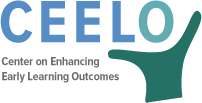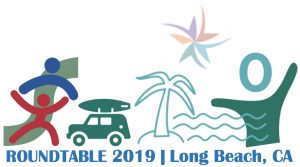The 2019 Roundtable was hosted in Long Beach, California
The 2019 Roundtable is collaboratively planned by NAECS-SDE, CEELO and CCSSO’s ECE-SCASS, with national technical assistance partners to build capacity of state agency early childhood specialists to provide informed leadership about research-based practices that directly impact the development and learning of children, birth through grade three. The meeting provides participants with cutting edge research and innovative proven practices to enhance state policies and programs.
Equity First: Strengthening an Equity Agenda for State Early Childhood Education Policy
PURPOSE: Build the capacity of participants to impact equity in early childhood education to address disparities, close achievement gaps and create positive child outcomes among learners Birth to 3rd Grade. As a result of the meeting, participants will develop a plan to take back to their state that identifies useful resources, good ideas, and new colleagues to support continued efforts to ensure equity for all young children.
Outcomes:
- Increase understanding and develop a shared language of how inequity impacts children and families.
- Increase knowledge of tools and strategies that state early childhood specialists can use to ensure more equitable services at the local level.
- Increase knowledge of the research on policy and practice that impacts equitable access to high quality early childhood education.
Four critical questions will be addressed during the meeting:
- How can state early childhood education (ECE) policy build on the strengths of families and communities to ensure equity for all?
- How can state early childhood education (ECE) policy effectively use data to Identify disparities and set priorities for funding and policy?
- How can state early childhood education (ECE) policy build a coherent system from birth through third grade to ensure no child falls through the cracks?
- How can state early childhood education (ECE) policy ensure that teaching and learning encompasses the full range of development- social emotional, health, and academics?
Download a pdf copy of the NEW! EXPANDED FINAL 2019 Roundtable Agenda .
| PRE-CONFERENCE DAY: Wednesday – May 29, 2019 | |
| 8:30-5:00 | CCSSO SCASS Workgroup: Developing a Balanced Early Childhood Assessment System Through Test Selection and Validation |
| 8:30-3:00 | CEELO Leadership Academy Fellows meeting (all fellows invited) |
| 2:00-5:00 | NAECS-SDE New Members Orientation and Committee Meetings |
| 5:30-7:30 | Welcome Reception |
| CONFERENCE DAY ONE: Thursday – May 30, 2019 |
| CONFERENCE DAY ONE: Thursday – May 30, 2019 | |
| 7:00-8:45 | NAECS-SDE Business Meeting – Breakfast and Networking |
| 8:45-9:15 | Welcome and set up for the day – Hello from Sponsors and Invited Guests |
| 9:15-10:15 | Opening Plenary – The Imperative to Set an Equity Agenda for Early Childhood Education |
| 10:15-10:30 | Break |
| 10:30-12:00 | Breakout Session #1
|
| 12:00 -1:15 | Lunch Plenary – Opportunities to Promote and Equity Agenda in Early Childhood Education
|
| 1:15-2:30 | Legacy 2030 Pioneers in Early Education: Reflections on Ensuring Equity in Early Childhood Education
|
| 2:30-2:45 | Break |
| 2:45-4:15 | Breakout Session #2
|
| 4:15-4:30 | Break |
| 4:30-5:30 | Application and Implications for Our Work
|
| 6:30 | Light Award Reception and Dinner |
| CONFERENCE DAY TWO: Friday – May 31, 2019 | |
| 7:00-8:00 | Breakfast and Networking |
| 8:00-8:30 | Welcome Back – Reflections on Day 1 |
| 8:30-9:45 | Plenary – National Institute for Early Education Research (NIEER) – Research to Inform an Equity Agenda for Early Childhood Education
|
| 9:45-10:00 | Break |
| 10:00-11:30 | Breakout Session #3
|
| 11:30-11:45 | Break |
| 11:45-1:00 | Lunch and Networking |
| 1:00-2:15 | Application and Implications for Our Work
• Smaller group discussion – Grouped by areas of interest for further discussion |
| 2:15-3:15 | Reflections from California |
| 3:15-3:30 | Closing Remarks |
| 3:30 | Adjourn |
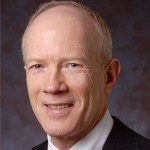 Steve Barnett is Director of NIEER and Principal Investigator at CEELO. Steve is a Board of Governors Professor and Director of the National Institute for Early Education Research (NIEER) at Rutgers University. His research includes studies of the economics of early care and education including costs and benefits, the long-term effects of preschool programs on children’s learning and development, and the distribution of educational opportunities. Dr. Barnett earned his Ph.D. in economics at the University of Michigan. He has authored or co-authored over 180 publications. Research interests include the economics of human development and practical policies for translating research findings into effective public investments. His best known works include: reviews of the research on long-term effects; benefit-cost analyses of the Perry Preschool and Abecedarian programs; randomized trials comparing alternative approaches to educating children including length of day,monolingual versus dual-language immersion, the Tools of the Mind curriculum; and, the series of State Preschool Yearbooks providing annual state-by-state analyses of progress in public Pre-K.
Steve Barnett is Director of NIEER and Principal Investigator at CEELO. Steve is a Board of Governors Professor and Director of the National Institute for Early Education Research (NIEER) at Rutgers University. His research includes studies of the economics of early care and education including costs and benefits, the long-term effects of preschool programs on children’s learning and development, and the distribution of educational opportunities. Dr. Barnett earned his Ph.D. in economics at the University of Michigan. He has authored or co-authored over 180 publications. Research interests include the economics of human development and practical policies for translating research findings into effective public investments. His best known works include: reviews of the research on long-term effects; benefit-cost analyses of the Perry Preschool and Abecedarian programs; randomized trials comparing alternative approaches to educating children including length of day,monolingual versus dual-language immersion, the Tools of the Mind curriculum; and, the series of State Preschool Yearbooks providing annual state-by-state analyses of progress in public Pre-K.
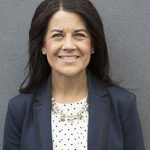 Kelli Bohanon, Director of Early Learning Programs, Kelli brings more than 20 years of experience in the early learning world to her current role. During two tenures at the Department of Early Learning, Kelli served as the Administrator for DEL’s Early Childhood Education and Assistance Program. Her responsibilities included providing visionary leadership, direction and administrative oversight to ECEAP, including planning and implementation of ECEAP’s expansion efforts. She also served as the Assistant Director for Partnerships and Collaboration, providing leadership and oversight to ECEAP, the Head Start State Collaboration Office, Home Visiting, Early Support for Infants and Toddlers program, DEL’s Infant/Toddler Regions, Medicaid Treatment Child Care program, Strengthening Families WA initiative and Early Learning Advisory Council. Outside her work at DEL, Kelli served as Assistant Director for the Maternal Infant Early Childhood Home Visiting Technical Assistance Center at ZERO TO THREE. Before that, she served as Deputy Director of Child Care Aware of WA, the entity responsible for implementation of the state’s Quality Rating and Improvement System, Early Achievers. She also spent nearly a decade working for the Enterprise for Progress in the Community Head Start/Early Head Start/Migrant Seasonal Head Start/ECEAP program in Yakima, where she began as a teacher for infants, toddlers and preschoolers with disabilities in a partnership between EPIC and the Yakima School District.
Kelli Bohanon, Director of Early Learning Programs, Kelli brings more than 20 years of experience in the early learning world to her current role. During two tenures at the Department of Early Learning, Kelli served as the Administrator for DEL’s Early Childhood Education and Assistance Program. Her responsibilities included providing visionary leadership, direction and administrative oversight to ECEAP, including planning and implementation of ECEAP’s expansion efforts. She also served as the Assistant Director for Partnerships and Collaboration, providing leadership and oversight to ECEAP, the Head Start State Collaboration Office, Home Visiting, Early Support for Infants and Toddlers program, DEL’s Infant/Toddler Regions, Medicaid Treatment Child Care program, Strengthening Families WA initiative and Early Learning Advisory Council. Outside her work at DEL, Kelli served as Assistant Director for the Maternal Infant Early Childhood Home Visiting Technical Assistance Center at ZERO TO THREE. Before that, she served as Deputy Director of Child Care Aware of WA, the entity responsible for implementation of the state’s Quality Rating and Improvement System, Early Achievers. She also spent nearly a decade working for the Enterprise for Progress in the Community Head Start/Early Head Start/Migrant Seasonal Head Start/ECEAP program in Yakima, where she began as a teacher for infants, toddlers and preschoolers with disabilities in a partnership between EPIC and the Yakima School District.
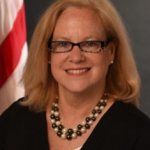 Shannon Christian serves as the Director of the Office of Child Care at US HHS’ Administration for Children and Families. She is a former Associate Commissioner of the former Child Care Bureau at ACF, where she advanced President Bush’s Good Start, Grow Smart early childhood initiative, and shaped the office’s research agenda to better support state policy and spending decisions. Committed to effective prevention strategies, Shannon oversaw the launch of Illinois’ home visiting program and was an active board member of Be Strong Families, a Chicago-based national nonprofit. Earlier in her career, Shannon was part of former Wisconsin Governor (and HHS secretary) Tommy Thompson’s welfare reform team, serving as head of the planning section in the state Health & Social Services Department’s Office of Policy and Budget, and as Senior Advisor to the Secretary of Workforce Development. Shannon has an MPP from Harvard’s Kennedy School of Government, a certificate in nonprofit management from Northwestern University’s Kellogg School of Business, and an undergraduate degree in economics and international relations from California State University, Chico.
Shannon Christian serves as the Director of the Office of Child Care at US HHS’ Administration for Children and Families. She is a former Associate Commissioner of the former Child Care Bureau at ACF, where she advanced President Bush’s Good Start, Grow Smart early childhood initiative, and shaped the office’s research agenda to better support state policy and spending decisions. Committed to effective prevention strategies, Shannon oversaw the launch of Illinois’ home visiting program and was an active board member of Be Strong Families, a Chicago-based national nonprofit. Earlier in her career, Shannon was part of former Wisconsin Governor (and HHS secretary) Tommy Thompson’s welfare reform team, serving as head of the planning section in the state Health & Social Services Department’s Office of Policy and Budget, and as Senior Advisor to the Secretary of Workforce Development. Shannon has an MPP from Harvard’s Kennedy School of Government, a certificate in nonprofit management from Northwestern University’s Kellogg School of Business, and an undergraduate degree in economics and international relations from California State University, Chico.
 Mary Louise Hemmeter is a professor of Special Education at Vanderbilt University. Her research focuses on effective instruction, supporting social emotional development and addressing challenging behavior, and coaching teachers. She has been a PI or Co-PI on numerous projects funded by the US Departments of Education and Health and Human Services. Through her work on the National Center on the Social Emotional Foundations for Early Learning and funded research projects, she was involved in the development of the Pyramid Model for Supporting Social Emotional Competence in Young Children and a model for coaching teachers to implement effective practices known as Practice Based Coaching. She is currently leading projects focused on examining the efficacy of the Pyramid Model in infant toddler, pre-k and kindergarten settings. She is a co-author on the Connect4Learning Pre-K Curriculum. She was a co-editor of the Journal of Early Intervention and President of the Council for Exceptional Children’s Division for Early Childhood. She received the Mary McEvoy Service to the Field Award and Merle B, Karnes Service to the Division Award from the Division for Early Childhood of the Council for Exceptional Children.
Mary Louise Hemmeter is a professor of Special Education at Vanderbilt University. Her research focuses on effective instruction, supporting social emotional development and addressing challenging behavior, and coaching teachers. She has been a PI or Co-PI on numerous projects funded by the US Departments of Education and Health and Human Services. Through her work on the National Center on the Social Emotional Foundations for Early Learning and funded research projects, she was involved in the development of the Pyramid Model for Supporting Social Emotional Competence in Young Children and a model for coaching teachers to implement effective practices known as Practice Based Coaching. She is currently leading projects focused on examining the efficacy of the Pyramid Model in infant toddler, pre-k and kindergarten settings. She is a co-author on the Connect4Learning Pre-K Curriculum. She was a co-editor of the Journal of Early Intervention and President of the Council for Exceptional Children’s Division for Early Childhood. She received the Mary McEvoy Service to the Field Award and Merle B, Karnes Service to the Division Award from the Division for Early Childhood of the Council for Exceptional Children.
 Walter S. Gilliam is Professor of Child Psychiatry and Psychology at the Yale University Child Study Center, as well as the Director of The Edward Zigler Center in Child Development and Social Policy. Dr. Gilliam is co-recipient of the prestigious 2008 Grawemeyer Award in Education for the coauthored book A Vision for Universal Preschool Education. Dr. Gilliam’s research involves early childhood education and intervention policy analysis (specifically how policies translate into effective services), ways to improve the quality of prekindergarten and child care services, the impact of early childhood education programs on children’s school readiness, and effective methods for reducing classroom behavior problems and preschool expulsion. His scholarly writing addresses early childhood care and education programs, school readiness, and developmental assessment of young children. Dr. Gilliam has led national analyses of state-funded prekindergarten policies and mandates, how prekindergarten programs are being implemented across the range of policy contexts, and the effectiveness of these programs at improving school readiness and educational achievement, as well as experimental and quasi-experimental studies on methods to improve early education quality.
Walter S. Gilliam is Professor of Child Psychiatry and Psychology at the Yale University Child Study Center, as well as the Director of The Edward Zigler Center in Child Development and Social Policy. Dr. Gilliam is co-recipient of the prestigious 2008 Grawemeyer Award in Education for the coauthored book A Vision for Universal Preschool Education. Dr. Gilliam’s research involves early childhood education and intervention policy analysis (specifically how policies translate into effective services), ways to improve the quality of prekindergarten and child care services, the impact of early childhood education programs on children’s school readiness, and effective methods for reducing classroom behavior problems and preschool expulsion. His scholarly writing addresses early childhood care and education programs, school readiness, and developmental assessment of young children. Dr. Gilliam has led national analyses of state-funded prekindergarten policies and mandates, how prekindergarten programs are being implemented across the range of policy contexts, and the effectiveness of these programs at improving school readiness and educational achievement, as well as experimental and quasi-experimental studies on methods to improve early education quality.
 Manuel Pastor is a Distinguished Professor of Sociology and American Studies & Ethnicity at the University of Southern California. He currently directs the Program for Environmental and Regional Equity (PERE) at USC and USC’s Center for the Study of Immigrant Integration (CSII). Pastor holds an economics Ph.D. from the University of Massachusetts, Amherst, and is the inaugural holder of the Turpanjian Chair in Civil Society and Social Change at USC. Pastor’s research has generally focused on issues of the economic, environmental and social conditions facing low-income urban communities – and the social movements seeking to change those realities. His current research culminates in his latest book, State of Resistance: What California’s Dizzying Descent and Remarkable Resurgence Means for America’s Future.
Manuel Pastor is a Distinguished Professor of Sociology and American Studies & Ethnicity at the University of Southern California. He currently directs the Program for Environmental and Regional Equity (PERE) at USC and USC’s Center for the Study of Immigrant Integration (CSII). Pastor holds an economics Ph.D. from the University of Massachusetts, Amherst, and is the inaugural holder of the Turpanjian Chair in Civil Society and Social Change at USC. Pastor’s research has generally focused on issues of the economic, environmental and social conditions facing low-income urban communities – and the social movements seeking to change those realities. His current research culminates in his latest book, State of Resistance: What California’s Dizzying Descent and Remarkable Resurgence Means for America’s Future.
 We’re delighted that at least SIX of CEELO’s Pioneers in Early Childhood Education will join the Roundtable for a panel discussion on their legacy and to provide reflections on ensuring equity in early childhood education. Joining us in Long Beach are: Barbara Bowman, Co-Founder and Irving B. Harris Professor, Erikson Institute; Evelyn Moore, Founder and Executive Director Emeritus, National Black Child Development Institute; Larry Schweinhart, President Emeritus, HighScope Educational Research Foundation; Linda Espinosa, Professor Emeritus of Early Childhood Education at the University of Missouri, Columbia; Marilou Hyson, early childhood development consultant; and, Valora Washington, CEO, Council for Professional Recognition.
We’re delighted that at least SIX of CEELO’s Pioneers in Early Childhood Education will join the Roundtable for a panel discussion on their legacy and to provide reflections on ensuring equity in early childhood education. Joining us in Long Beach are: Barbara Bowman, Co-Founder and Irving B. Harris Professor, Erikson Institute; Evelyn Moore, Founder and Executive Director Emeritus, National Black Child Development Institute; Larry Schweinhart, President Emeritus, HighScope Educational Research Foundation; Linda Espinosa, Professor Emeritus of Early Childhood Education at the University of Missouri, Columbia; Marilou Hyson, early childhood development consultant; and, Valora Washington, CEO, Council for Professional Recognition.
 We are pleased to close-out the 2019 Roundtable with a focus on our host state, California. Sarah Neville-Morgan, Director, Division of Early Education and Care, California Department of Education; Cecilia Fisher-Dahms, CCDF Quality Improvement Administrator, Early Learning and Care Division, California Department of Education; and, Chris Becerra, Director of Early Learning, Orange County Office of Education will all three reflect on the meeting and provide us insights on California’s early childhood equity journey.
We are pleased to close-out the 2019 Roundtable with a focus on our host state, California. Sarah Neville-Morgan, Director, Division of Early Education and Care, California Department of Education; Cecilia Fisher-Dahms, CCDF Quality Improvement Administrator, Early Learning and Care Division, California Department of Education; and, Chris Becerra, Director of Early Learning, Orange County Office of Education will all three reflect on the meeting and provide us insights on California’s early childhood equity journey.
- FINAL 2019 Roundtable Agenda .
- 2019 Roundtable Agenda At-a-Glance
- Acronyms Frequently Used in Early Care and Education
- 2019 Roundtable Participants List
Preliminary Readings:
- Equity Starts Early: How Chiefs Will Build High-Quality Early Education
- Addressing the African American Achievement Gap: Three Leading Educators Issue a Call to Action, Barbara Bowman, James Comer, David Johns in Young Children, May 2018
- The Views of State Early Childhood Education Agency Staff on Their Work and Their Vision for Young Children: Informing a Legacy for Young Children by 2030
